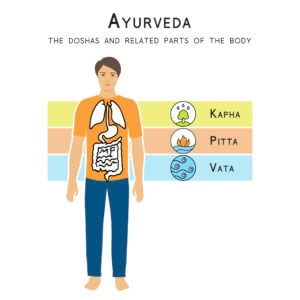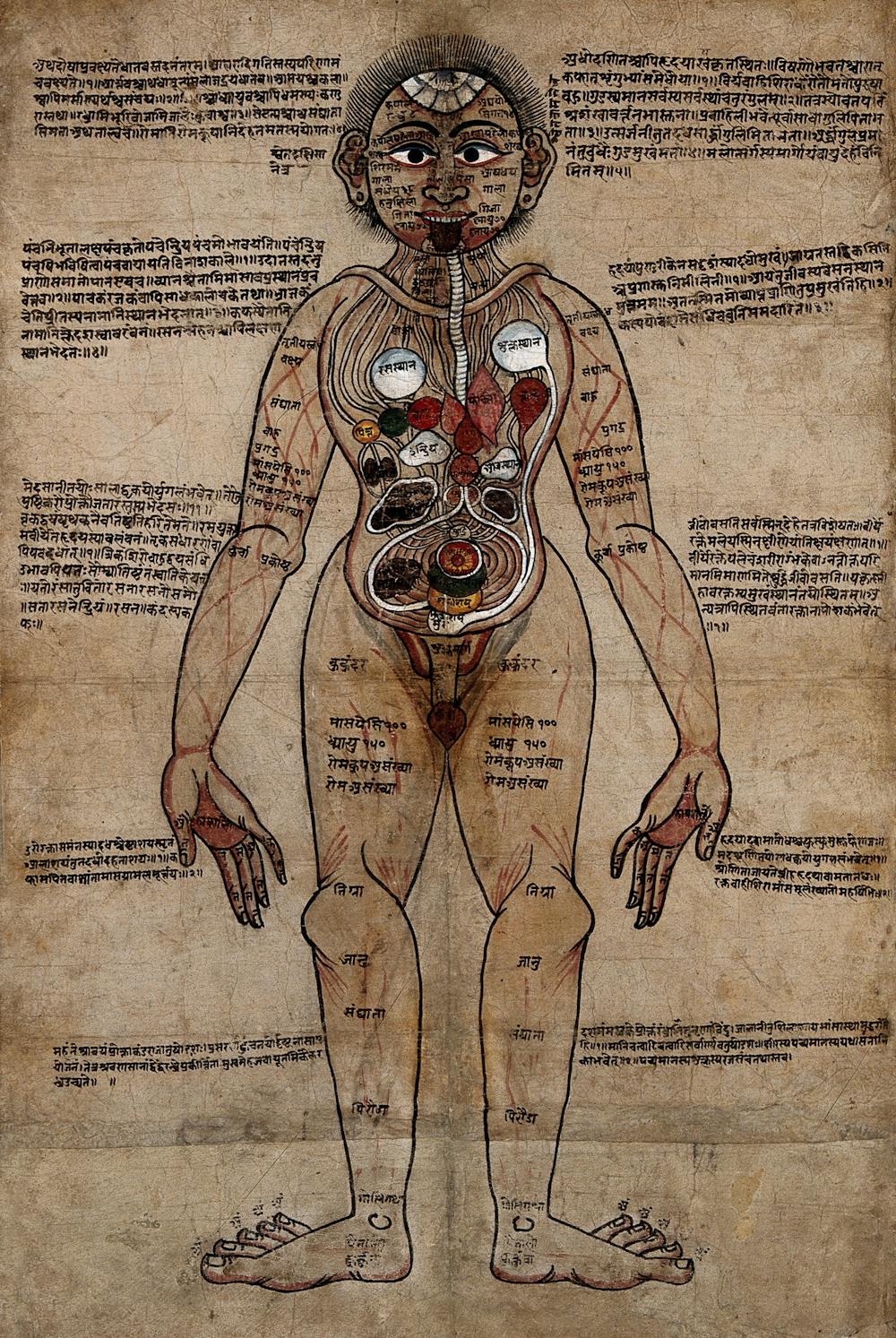Exactly How Ayurveda Advertises Holistic Health and Natural Healing
Exactly How Ayurveda Advertises Holistic Health and Natural Healing
Blog Article
Check Out the Profound Advantages of Ayurveda and Enhance Your Daily Life
Ayurveda, an old system of medicine stemming from India, provides an extensive structure for boosting wellness through its alternative principles. By determining one's one-of-a-kind dosha, individuals can tailor their lifestyle selections to promote a harmonious equilibrium amongst spirit, body, and mind. This personalized technique not only urges physical health however likewise supports mental clarity and emotional stability. As we discover the details of Ayurveda, it becomes evident that its techniques hold the possible to change day-to-day routines into routines of health and wellness and mindfulness, increasing the question of exactly how one might start to incorporate these timeless principles right into modern life.
Comprehending Ayurveda Principles
Although Ayurveda is commonly perceived as an alternative healing system, its concepts are deeply rooted in a holistic understanding of wellness and health. Central to Ayurveda is the idea that ideal health is accomplished via a balance of body, mind, and spirit, highlighting the interconnectedness of these elements. This ancient method identifies that each individual possesses an unique constitution, or "prakriti," which influences their physical, mental, and psychological well-being.
Ayurveda advocates for tailored methods to health and wellness, including dietary standards, way of life modifications, and natural solutions tailored to individual requirements. It motivates the usage of all-natural treatments that advertise self-healing and improve vigor. The technique additionally highlights the importance of preventative treatment, focusing on preserving balance instead of simply dealing with health problem.

The Three Doshas Explained
An essential facet of Ayurveda is the principle of the 3 doshas, which are crucial powers that control physical and mental procedures within the body. These doshas are Vata, Pitta, and Kapha, each standing for special mixes of the five elements: earth, water, air, fire, and space.
Vata, characterized by air and room, is accountable for movement and communication. It controls physical features such as nerve, respiration, and flow impulses. People with a primary Vata dosha often tend to be innovative, energetic, and versatile, yet may also experience anxiousness and restlessness when imbalanced.
Pitta, linked with fire and water, personifies improvement and metabolic process. This dosha regulates food digestion, metabolic process, and body temperature - Ayurveda. Those with a solid Pitta existence are often concentrated, passionate, and driven, yet they may come to be susceptible to impatience and inflammation when out of equilibrium
Kapha, developed by earth and water, gives framework and security. It is connected to development, resistance, and lubrication within the body. People with a dominant Kapha dosha are generally tranquil, nurturing, and client, but they may battle with lethargy and add-on if their energy is unbalanced.

Understanding these doshas is necessary for attaining harmony in both mind and body.
Benefits for Physical Wellness
Various advantages for physical health and wellness can be stemmed from the concepts of Ayurveda, which stresses a holistic strategy to well-being. By concentrating on the balance of the 3 doshas-- Vata, Pitta, and Kapha-- Ayurveda advertises optimal performance of the body. This personalized technique allows people to tailor their way of life, diet regimen, and therapies according to their special constitution and existing inequalities.
One significant advantage of Ayurveda is its focus on preventive care. By incorporating nutritional recommendations, natural supplements, and way of living practices, Ayurveda seeks to maintain health rather than just dealing with health problem. This proactive stance can enhance immunity and lower the risk of chronic conditions.
Furthermore, Ayurvedic methods such as yoga and reflection add to increased physical vigor and versatility (Ayurveda). The usage of all-natural herbs and remedies can minimize usual disorders, boost food digestion, and enhance detoxification processes. Routine Ayurvedic therapies, such as Panchakarma, are made to clean and renew the body, fostering general physical health
Eventually, Ayurveda motivates a well balanced lifestyle, promoting not just physical health but also a deeper link in between mind, environment, and body, leading to continual health.
Enhancing Psychological Wellness
The alternative strategy of Ayurveda expands past physical health and wellness, considerably enhancing psychological health. This ancient system of medicine stresses the equilibrium of the body, mind, and spirit, fostering psychological durability and mental quality. Central to Ayurvedic ideology is the idea of doshas, next page which are vital powers that influence specific constitution and psychological states. By recognizing one's dosha, people can tailor their way of living and dietary selections to promote consistency within.
Ayurveda employs different strategies to support psychological health, consisting of herbal remedies, reflection, and yoga. Adaptogenic natural herbs such as Ashwagandha and Brahmi are recognized to decrease stress and anxiety and improve cognitive feature, while everyday reflection techniques boost mindfulness and emotional security. Additionally, yoga acts as an effective tool to ease anxiety and promote internal tranquility, integrating breath control and stances that align the mind and body.
In addition, Ayurveda encourages a balanced routine, stressing ample sleep, nourishing meals, and stress and anxiety management techniques. By promoting self-awareness and motivating a link to nature, Ayurveda grows a resilient mind, ultimately causing boosted psychological well-being and a deeper sense of satisfaction in day-to-day live.
Incorporating Ayurveda Into Life
Integrating Ayurveda into life can be a transformative journey in the direction of all natural wellness. This ancient system of medicine emphasizes equilibrium in the mind, body, you could try these out and spirit, providing useful tools for boosting wellness and vitality. To start, people can analyze their one-of-a-kind dosha-- Vata, Pitta, or Kapha-- to customize way of life choices that straighten with their constitution.
Including Ayurvedic principles begins with conscious eating. Consuming seasonal, locally-sourced foods that suit one's dosha promotes digestion and energy degrees. Furthermore, practicing day-to-day routines, or dinacharya, such as waking early, oil pulling, and reflection establishes a grounding foundation for health.
Natural remedies, led by an Ayurvedic professional, can even more sustain certain health problems. Integrating yoga and breathing exercises more motivates physical flexibility and psychological clarity.


Conclusion
Integrating Ayurveda right into day-to-day life offers a thorough structure for achieving alternative wellness and well-being. By comprehending specific doshas and their influence on physical and mental wellness, individuals can tailor their way of living choices successfully.
Central to Ayurveda is the idea that ideal wellness is attained through a balance of body, mind, and spirit, emphasizing the interconnectedness of these aspects.Ayurveda advocates for personalized strategies to wellness, incorporating dietary guidelines, lifestyle modifications, and natural treatments tailored to private requirements.In addition, Ayurveda highlights the function of the setting in health and wellness, identifying that exterior variables, such as periods, environment, and way of living selections, can influence a person's wellness.The holistic approach of Ayurveda extends beyond physical wellness, significantly enhancing psychological health.Integrating Ayurveda right into everyday life provides a comprehensive framework for attaining alternative health and well-being.
Report this page